The Best Warren Buffett Dividend Stocks
The best Warren Buffett dividend stocks are expected to produce impressive returns for the Berkshire Hathaway equity portfolio.

Profit and prosper with the best of Kiplinger's advice on investing, taxes, retirement, personal finance and much more. Delivered daily. Enter your email in the box and click Sign Me Up.
You are now subscribed
Your newsletter sign-up was successful
Want to add more newsletters?

Delivered daily
Kiplinger Today
Profit and prosper with the best of Kiplinger's advice on investing, taxes, retirement, personal finance and much more delivered daily. Smart money moves start here.

Sent five days a week
Kiplinger A Step Ahead
Get practical help to make better financial decisions in your everyday life, from spending to savings on top deals.

Delivered daily
Kiplinger Closing Bell
Get today's biggest financial and investing headlines delivered to your inbox every day the U.S. stock market is open.

Sent twice a week
Kiplinger Adviser Intel
Financial pros across the country share best practices and fresh tactics to preserve and grow your wealth.

Delivered weekly
Kiplinger Tax Tips
Trim your federal and state tax bills with practical tax-planning and tax-cutting strategies.

Sent twice a week
Kiplinger Retirement Tips
Your twice-a-week guide to planning and enjoying a financially secure and richly rewarding retirement

Sent bimonthly.
Kiplinger Adviser Angle
Insights for advisers, wealth managers and other financial professionals.

Sent twice a week
Kiplinger Investing Weekly
Your twice-a-week roundup of promising stocks, funds, companies and industries you should consider, ones you should avoid, and why.

Sent weekly for six weeks
Kiplinger Invest for Retirement
Your step-by-step six-part series on how to invest for retirement, from devising a successful strategy to exactly which investments to choose.
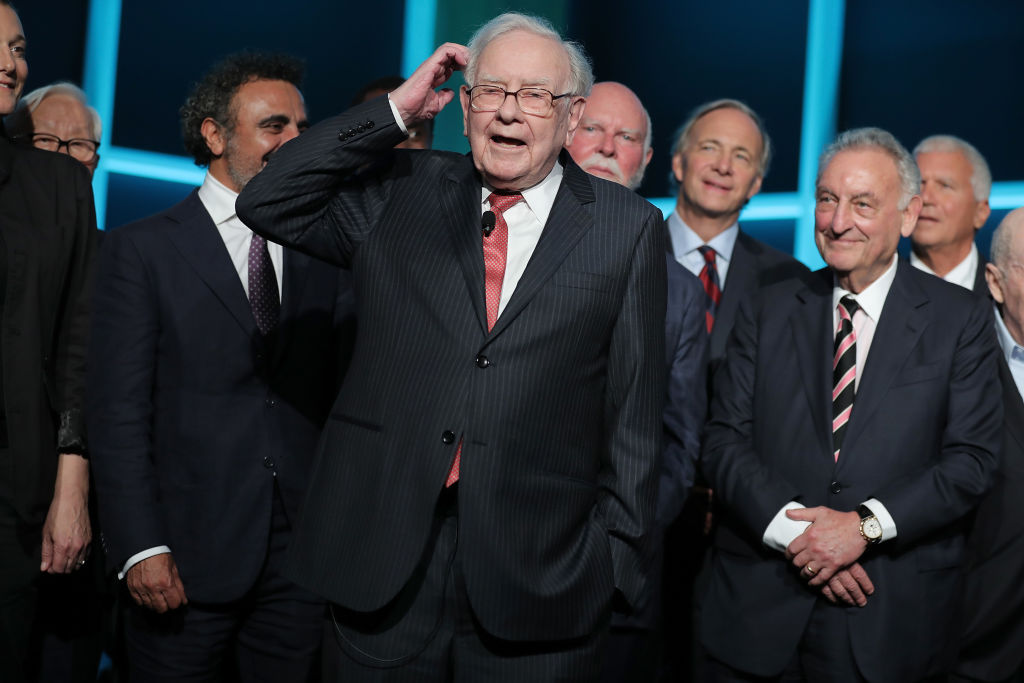
Warren Buffett's retirement as CEO of Berkshire Hathaway (BRK.B) marks the end of an era, but it's unlikely to be the end of the holding company's love of high-quality dividend stocks.
To be sure, much will change. New CEO Greg Abel will have to create his own vision for Berkshire Hathaway. At the same time, Todd Combs, who, along with Ted Weschler, manages perhaps 10% of Berkshire Hathaway's stock portfolio, is leaving to take a job at JPMorgan Chase (JPM).
The days of investors diligently tracking every one of Berkshire's buys and sells just won't be the same.
Be that as it may, the Oracle of Omaha has said that his preferred holding period is "forever," and that's been a winning formula when it comes to Buffett's best dividend stocks.
What Buffett has to say about dividend stocks
Berkshire famously doesn't pay a dividend of its own even as Buffett likes to rake them in with both fists. There's no hypocrisy here. Buffett is a master of capital allocation. Investors entrust him with their capital to maximize their returns. Why would Buffett return cash to shareholders via a dividend that yields, say, 2% when he's confident he can generate a greater return on their capital elsewhere?
When he's on the other side of the deal, however, Buffett has an abiding love for long-term and reliable dividend payers. For one thing, dividends enforce management discipline, he's said. Even better is the magic of compounding.
When a company raises its dividend regularly over an extended period of time, the yield on an investor's cost basis goes up. Hold on long enough at that puny 2% yield you started out with could hit double-digits or more one day.
Buffett periodically likes to highlight this fact in his annual letters to shareholders, noting that – spoiler alert – in 1994, Berkshire received $75 million in Coca-Cola (KO) cash dividends. Less than two decades later, that sum had ballooned to more than $700 million.
"Growth occurred every year, just as certain as birthdays," Buffett wrote. "All Charlie [Munger] and I were required to do was cash Coke's quarterly dividend checks. We expect that those checks are highly likely to grow."
They have.
How we chose the best Buffett dividend stocks
Note that Berkshire amassed its massive KO stake back in the late 1980s and early 1990s. Based on the initial cost of the investment, the dividend yield on Buffett's stake is around 60%.
With that example being top of mind, we screened Berkshire's portfolio for the best Buffett dividend stocks based on the current forward yield, commitment to dependable dividend growth over the long haul, and analysts' consensus recommendations.
Have a look at five of the best Buffett dividend stocks.
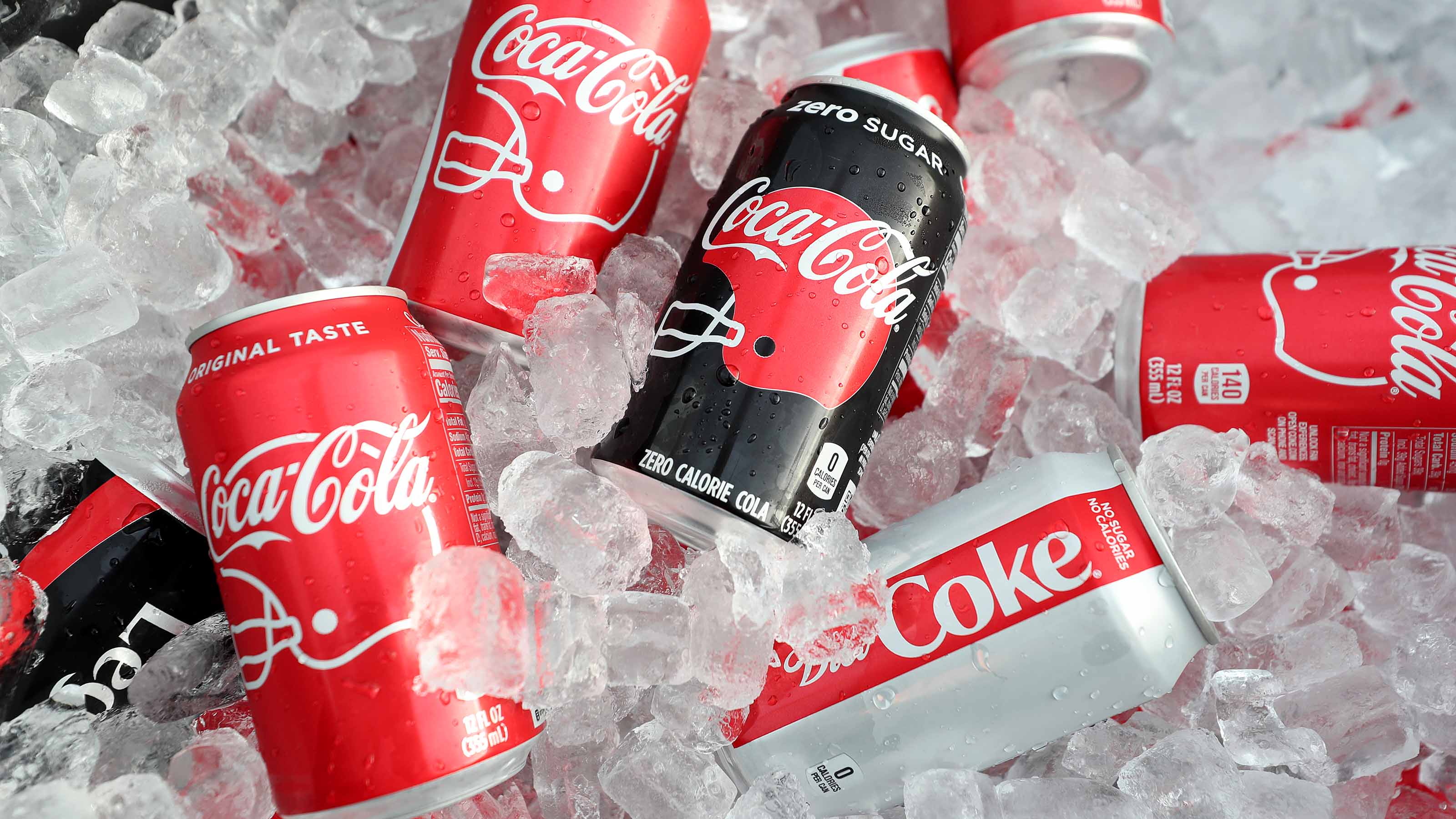
Coca-Cola
- Market value: $301.6 billion
- Dividend yield: 2.9%
- Percentage of Berkshire Hathaway portfolio: 9.9%
- Berkshire Hathaway ownership stake: 9.3%
No surprises here. Few companies have Coca-Cola's track record when it comes to returning cash to shareholders. Indeed, this member of the S&P 500 Dividend Aristocrats index has increased its payout annually for more than six decades.
Buffett quipped that he drank Coke – and watched its stock – for more than 50 years before finally taking the plunge in 1988. Today, KO is Berkshire's fourth-largest holding – one that generated more than $800 million in dividend income in 2024.
KO stock has trailed the broader market over the past few years, but analysts say it's poised to get its momentum back. The Buy-rated Dow Jones stock remains one of Wall Street's favorite names in the consumer staples sector. Analysts surveyed by S&P Global Market Intelligence give shares a consensus recommendation of Buy, with high conviction to boot.

Bank of America
- Market value: $403.5 billion
- Dividend yield: 2.0%
- Percentage of Berkshire Hathaway portfolio: 11.0%
- Berkshire Hathaway ownership stake: 7.5%
Buffett first bought Bank of America (BAC) stock back in 2017 and he's clearly pretty fond of it. Even as Berkshire slashed or outright exited stakes in a host of financial sector names over the years, he remained committed to the nation's second biggest bank by assets.
Partly that's because BAC stock paid Berkshire about $1 billion in cash dividends in fiscal 2024.
It also helps that BAC has raised its dividend annually for 12 years and counting.
True, Buffett has been trimming Berkshire's BAC stake over the past few quarters, but it is still the holding company's third-largest position.
The Street likes BAC over the shorter term, as well. Industry analysts give shares a consensus recommendation of Buy, with very high conviction.
"We believe that the current BAC share price undervalues the franchise given ongoing improvement in return metrics and continued positive operating leverage," writes Argus Research analyst Stephen Biggar, who rates the financial stock at Buy.
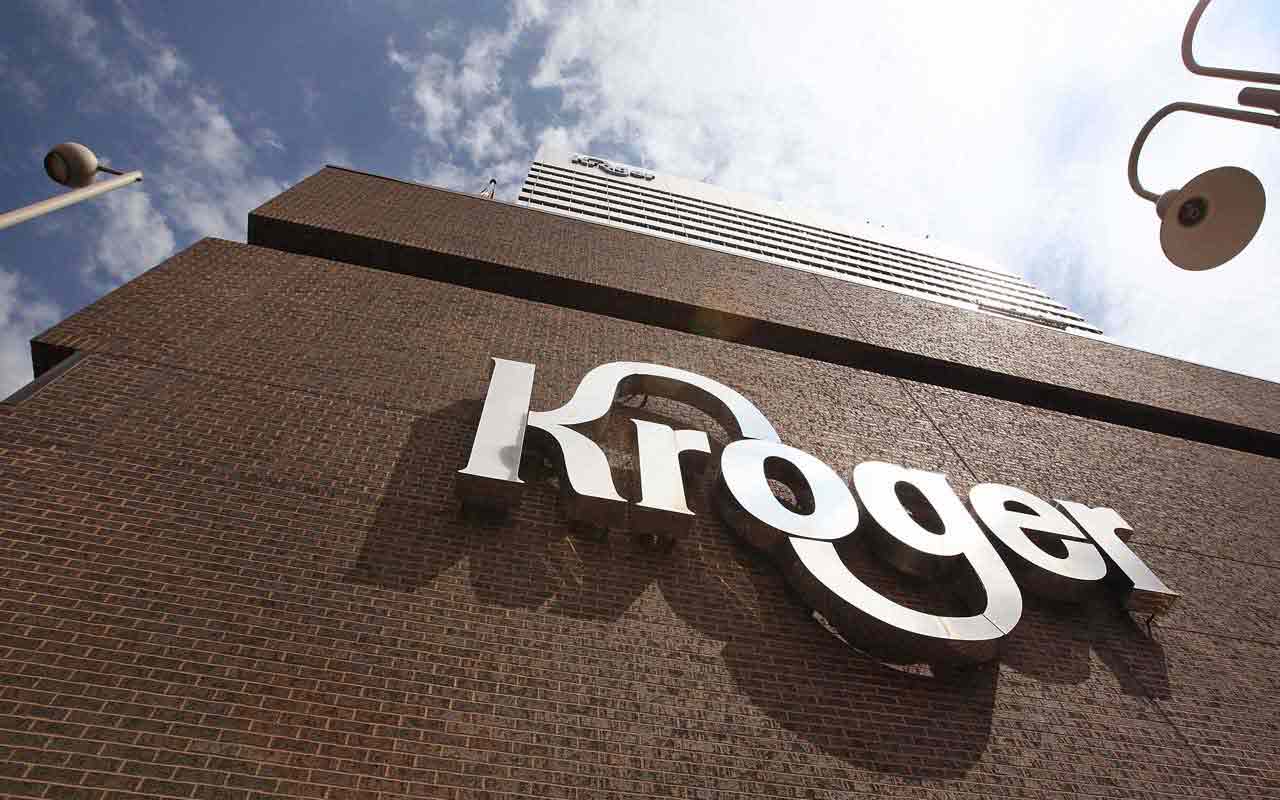
Kroger
- Market value: $39.7 billion
- Dividend yield: 2.2%
- Percentage of Berkshire Hathaway portfolio: 1.3%
- Berkshire Hathaway ownership stake: 7.6%
When Buffett initiated a stake in Kroger (KR) in 2019, it looked like a classic defensive dividend play. With about 2,800 locations in 35 states, Kroger is the nation's second-largest grocery retailer after Walmart (WMT).
It's a low-margin business in a defensive sector, but it sure does pay dividends. Heck, Kroger has hiked its dividend annually for 19 straight years – and at a compound annual growth rate of 13%.
As a low-beta stock, KR tends to lag the broader market when everything is going up. It also tends to hold up better when stocks are selling off. Interestingly, KR has generated competitive long-term performance vs the S&P 500 despite the secular bull market.
Looking at the next 12 to 18 months, the Street gives KR stock a consensus recommendation of Buy, albeit with somewhat mixed conviction.
Kroger is Berkshire's 11th-largest holding.
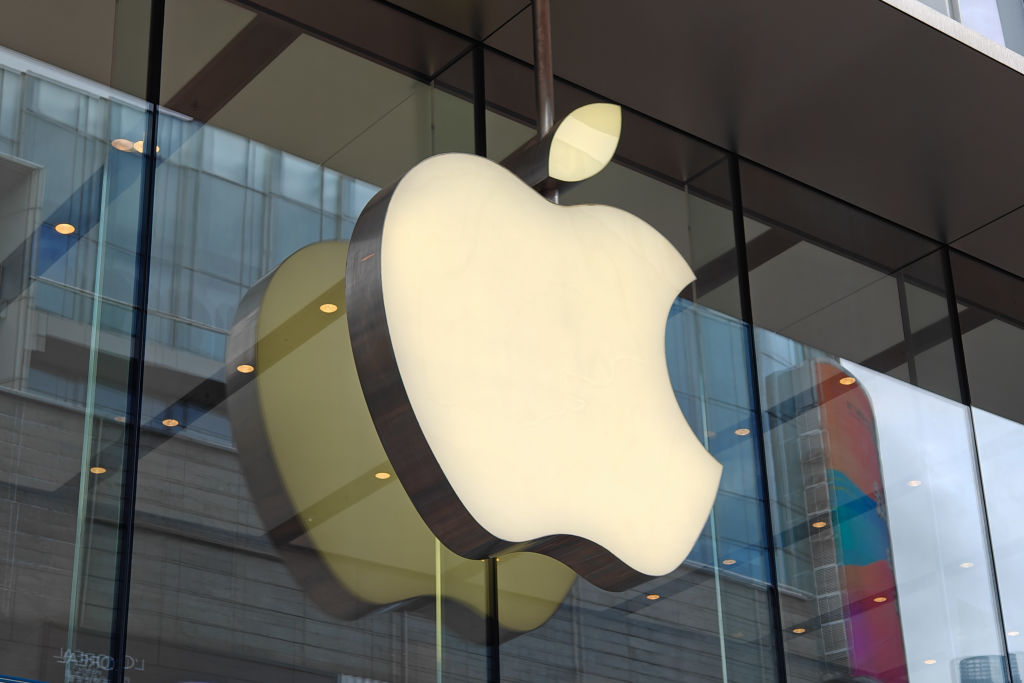
Apple
- Market value: $4.04 trillion
- Dividend yield: 0.4%
- Percentage of Berkshire Hathaway portfolio: 22.7%
- Berkshire Hathaway ownership stake: 1.6%
Don't let the paltry yield on Apple's (AAPL) dividend fool you. Yes, the company gets flack for its tiny yield, but that's partly a function of its soaring share price and partly due to its strict dividend policy.
Apple prefers returning cash to shareholders through buybacks, which are more tax-friendly. As such, it generally follows a regime where it regularly raises its dividend by only one cent.
That sounds like a lousy deal until you realize that Apple's dividend has increased at a compound annual growth rate of more than 8% over the past decade. Buffett's No. 1 pick, which he first bought in 2016, paid Berkshire about $780 million in cash dividends last year.
Meanwhile, investors counting on future increases to the payout can probably rest easy. For the 12 months ended September 2025, Apple generated almost $80 billion in free cash flow – and that was after paying out more than $15 billion in dividends.
The Street gives Apple a consensus recommendation of Buy, with mixed conviction.
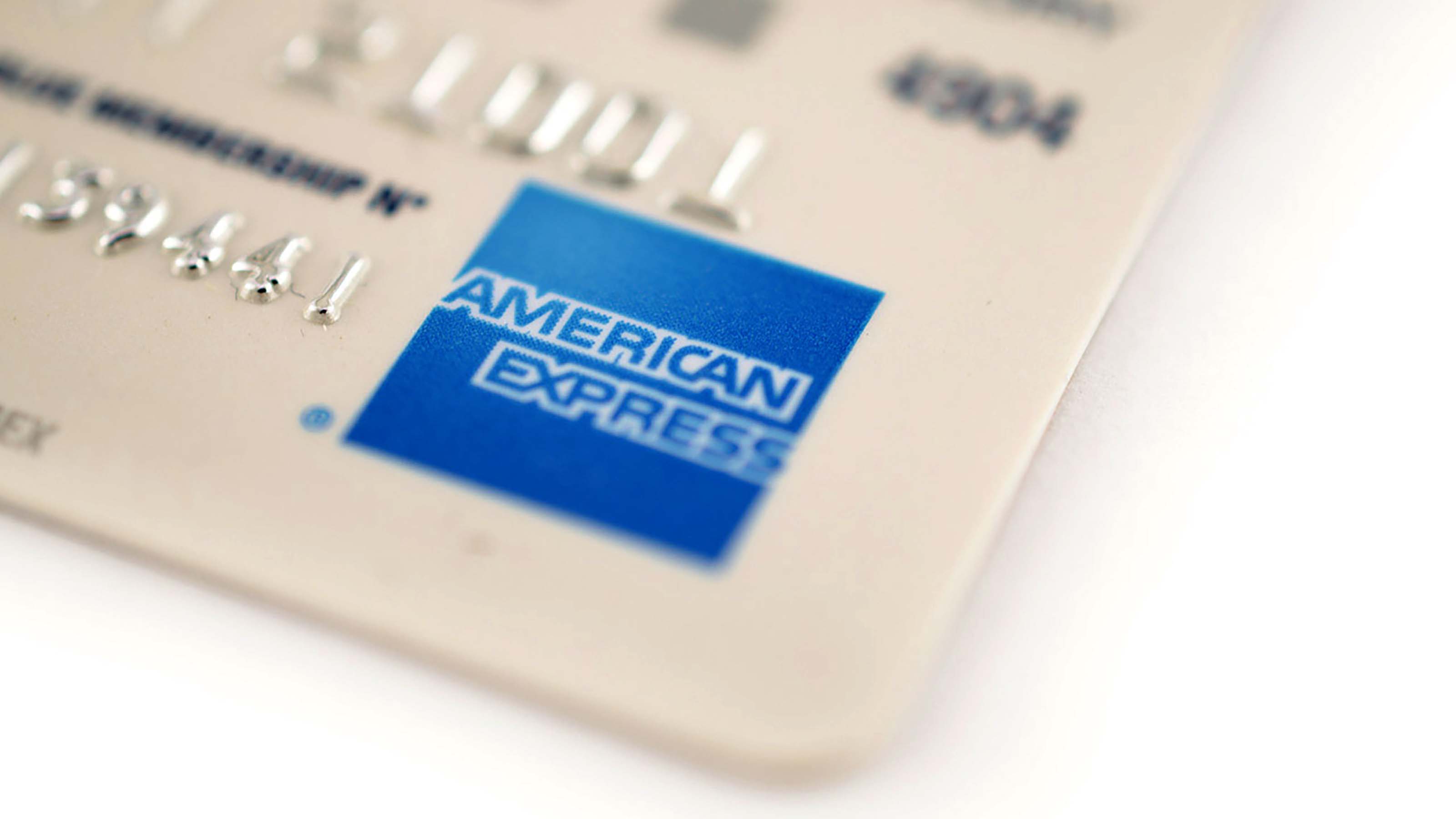
American Express
- Market value: $257.9 billion
- Dividend yield: 0.9%
- Percentage of Berkshire Hathaway portfolio: 18.8%
- Berkshire Hathaway ownership stake: 21.6%
Buffett really loves American Express (AXP). He first bought the stock in the 1960s, but he didn't start building Berkshire's massive long-term holding until the 1990s.
Today, Berkshire owns more than a fifth of the financial company's shares outstanding. And at 19% of its U.S. equity portfolio, AXP is Berkshire's second-largest holding after Apple.
AXP's dividend yield of less than 1% won't impress impatient equity income investors. Those with longer horizons will appreciate the fact that AXP has increased its payout at a compound annual growth rate of more than 11% over the past decade.
Analysts are split on AXP over the shorter term, giving shares a consensus recommendation of Hold.
Speaking for the bulls, Argus Research analyst Stephen Biggar cites a competitive strength in making his Buy call on AXP.
"The company's customers, who tend to have higher incomes than those of other credit card companies as well as better credit scores, are generally more insulated from economic distress and have not shown signs of slower spending despite periods of high inflation and interest rates," the analyst writes.
Related content
Profit and prosper with the best of Kiplinger's advice on investing, taxes, retirement, personal finance and much more. Delivered daily. Enter your email in the box and click Sign Me Up.

Dan Burrows is Kiplinger's senior investing writer, having joined the publication full time in 2016.
A long-time financial journalist, Dan is a veteran of MarketWatch, CBS MoneyWatch, SmartMoney, InvestorPlace, DailyFinance and other tier 1 national publications. He has written for The Wall Street Journal, Bloomberg and Consumer Reports and his stories have appeared in the New York Daily News, the San Jose Mercury News and Investor's Business Daily, among many other outlets. As a senior writer at AOL's DailyFinance, Dan reported market news from the floor of the New York Stock Exchange.
Once upon a time – before his days as a financial reporter and assistant financial editor at legendary fashion trade paper Women's Wear Daily – Dan worked for Spy magazine, scribbled away at Time Inc. and contributed to Maxim magazine back when lad mags were a thing. He's also written for Esquire magazine's Dubious Achievements Awards.
In his current role at Kiplinger, Dan writes about markets and macroeconomics.
Dan holds a bachelor's degree from Oberlin College and a master's degree from Columbia University.
Disclosure: Dan does not trade individual stocks or securities. He is eternally long the U.S equity market, primarily through tax-advantaged accounts.
-
 Quiz: Do You Know How to Avoid the "Medigap Trap?"
Quiz: Do You Know How to Avoid the "Medigap Trap?"Quiz Test your basic knowledge of the "Medigap Trap" in our quick quiz.
-
 5 Top Tax-Efficient Mutual Funds for Smarter Investing
5 Top Tax-Efficient Mutual Funds for Smarter InvestingMutual funds are many things, but "tax-friendly" usually isn't one of them. These are the exceptions.
-
 AI Sparks Existential Crisis for Software Stocks
AI Sparks Existential Crisis for Software StocksThe Kiplinger Letter Fears that SaaS subscription software could be rendered obsolete by artificial intelligence make investors jittery.
-
 5 Top Tax-Efficient Mutual Funds for Smarter Investing
5 Top Tax-Efficient Mutual Funds for Smarter InvestingMutual funds are many things, but "tax-friendly" usually isn't one of them. These are the exceptions.
-
 Why Invest In Mutual Funds When ETFs Exist?
Why Invest In Mutual Funds When ETFs Exist?Exchange-traded funds are cheaper, more tax-efficient and more flexible. But don't put mutual funds out to pasture quite yet.
-
 Social Security Break-Even Math Is Helpful, But Don't Let It Dictate When You'll File
Social Security Break-Even Math Is Helpful, But Don't Let It Dictate When You'll FileYour Social Security break-even age tells you how long you'd need to live for delaying to pay off, but shouldn't be the sole basis for deciding when to claim.
-
 I'm an Opportunity Zone Pro: This Is How to Deliver Roth-Like Tax-Free Growth (Without Contribution Limits)
I'm an Opportunity Zone Pro: This Is How to Deliver Roth-Like Tax-Free Growth (Without Contribution Limits)Investors who combine Roth IRAs, the gold standard of tax-free savings, with qualified opportunity funds could enjoy decades of tax-free growth.
-
 One of the Most Powerful Wealth-Building Moves a Woman Can Make: A Midcareer Pivot
One of the Most Powerful Wealth-Building Moves a Woman Can Make: A Midcareer PivotIf it feels like you can't sustain what you're doing for the next 20 years, it's time for an honest look at what's draining you and what energizes you.
-
 Stocks Make More Big Up and Down Moves: Stock Market Today
Stocks Make More Big Up and Down Moves: Stock Market TodayThe impact of revolutionary technology has replaced world-changing trade policy as the major variable for markets, with mixed results for sectors and stocks.
-
 I'm a Wealth Adviser Obsessed With Mahjong: Here Are 8 Ways It Can Teach Us How to Manage Our Money
I'm a Wealth Adviser Obsessed With Mahjong: Here Are 8 Ways It Can Teach Us How to Manage Our MoneyThis increasingly popular Chinese game can teach us not only how to help manage our money but also how important it is to connect with other people.
-
 Looking for a Financial Book That Won't Put Your Young Adult to Sleep? This One Makes 'Cents'
Looking for a Financial Book That Won't Put Your Young Adult to Sleep? This One Makes 'Cents'"Wealth Your Way" by Cosmo DeStefano offers a highly accessible guide for young adults and their parents on building wealth through simple, consistent habits.
